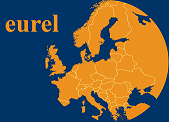The paper focuses on the role of the Roman Catholic Church in Croatian society, with a special emphasis on its attitudes towards transitional justice issues.
In order to establish the attitudes of the Church towards transitional justice issues in Croatia, I have analyzed statements of high Church officials, at masses celebrated in various occasions and commemorations, as well as their statements and opinions given in Catholic Press Agency IKA press releases and Glas koncila weekly. Special attention is given to their treatment of the issue of the Homeland War and the war crimes committed in that period, the International Criminal Tribunal for the Former Yugoslavia and its judgments in trials against Croatian military officials, and the issue of Croatian Serb victims killed by Croatian forces.
The results of the analysis show that regarding the issues of transitional justice, the Church stands firmly with the mainstream nationalist narrative that Croatia was a heroic, innocent nation that had to defend itself and fought a just and legitimate war. The Church in principle condemns all the crimes, but when it comes to the crimes committed against the Serb civilians, they are regarded as individual incidents and it is always reminded that Croatia was the victim and Serbia was the aggressor, although the victims in question are Croatian Serbs who were Croatian citizens and civilians. Also, clear messages of Christian forgiveness and reconciliation have not been heard, nor have the high church officials ever taken any steps to foster reconciliation.
The conclusion is that since the Roman Catholic Church is the institution that enjoys the greatest confidence in Croatian society, it is a significant domestic stakeholder that obstructs the process of dealing with the past in Croatia and reconciliation in the region.
- Other

 PDF version
PDF version

